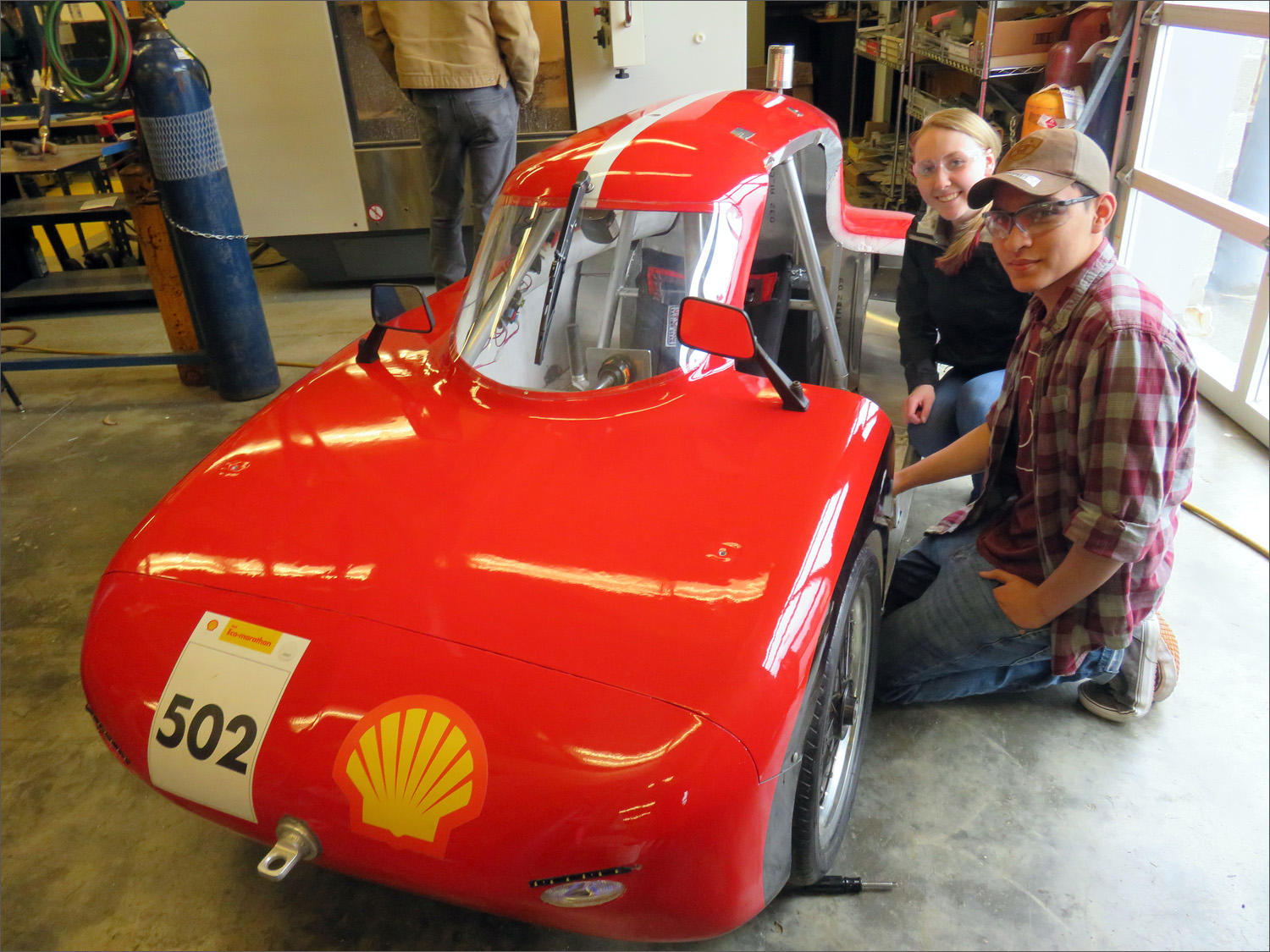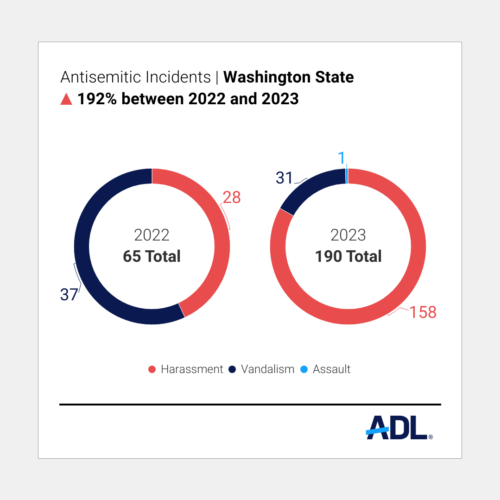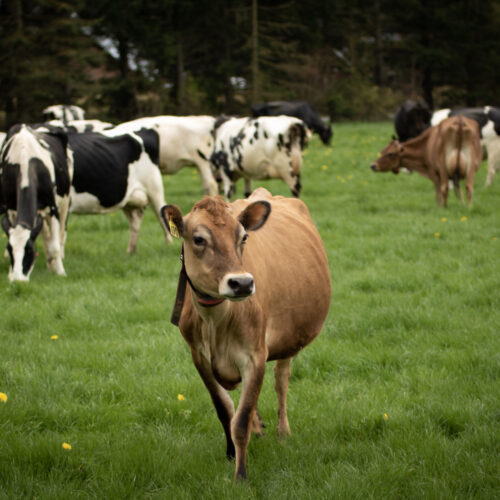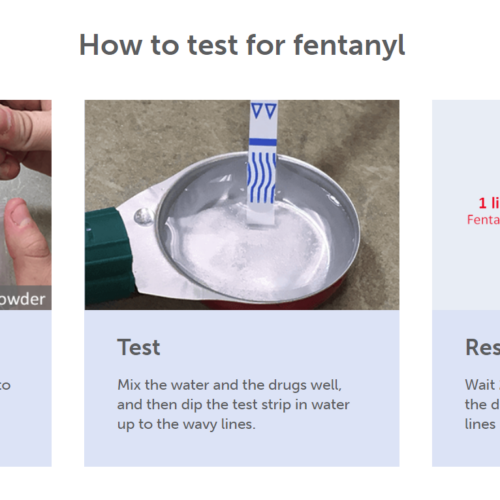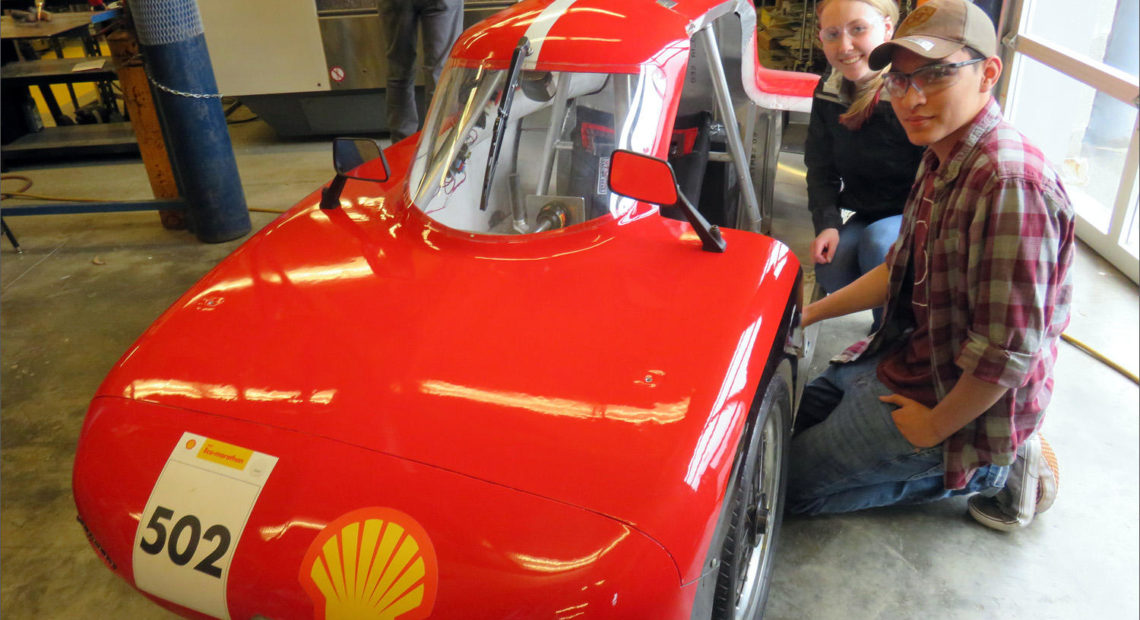
Check Out This 520 MPG Car. It’s Built By High School Students
Listen
Students from Oregon State University, Granite Falls High School in Washington and the University of British Columbia are among 99 teams pushing the boundaries of automotive fuel efficiency. The Northwest students are driving in an international competition in California through this weekend.
A Toyota Prius gets about 50 miles to the gallon on the highway. But that’s nothing compared to the hand-built cars that Granite Falls 11th grader Edward Quinonez and his teammates brought to the Shell Eco-Marathon.
“Two years ago, we got 1,100 miles to the gallon,” he said. “So this will go really far on not a whole lot of fuel.”
Quinonez is standing beside a green and pink, diesel-powered, one seater that rolls on three bicycle tires. The super-streamlined car body is mostly carbon fiber. The whole thing weighs slightly more than 200 pounds.
Granite Falls High School team driver Orion Green says the goal of the competition is to get the best mileage possible.
“It’s not a speed race,” he said. “You only ever go up to about 30 mph.”
Green said he hopes the auto industry adopts some of the weight saving and design innovations the high school and college teams are demonstrating.
“Shaving weight, doing those things that will just make it better,” Green said. “The auto industry can do this, but they haven’t and we hope that they learn from it.”
The Shell Eco-Marathon is taking place at the Sonoma Raceway in northern California. Category winners are expected to achieve more than 3,500 miles per gallon this year.
Electric cars go even further on a mpg-equivalent basis. Oregon State University’s entry in the competition is a bullet-shaped battery-electric prototype that weighs less than 50 pounds without the driver.
The fuel economy measuring stick for the electric cars is called MPGe.
“Previously we have achieved 8,600 MPGe and we’re hoping to be well over 9,000 MPGe this year,” OSU team leader Aron Walker said in an email. For comparison, the new Tesla Model 3 is rated at 130 MPGe.
The Shell Eco-Marathon competition has two vehicle categories:
- The UrbanConcept division emphasizes energy-efficiency within “roadworthy” parameters such as requirements for rear-view mirrors, headlights, four wheels and turn signals.
- The Prototype division is the more freewheeling and futuristic category where maximum efficiency sometimes trumps practicality.
Within those two categories, teams can choose drivetrains powered by different energy sources such as gasoline, diesel, ethanol, hydrogen fuel cell or electric batteries.
Granite Falls High School entered two diesel cars this year, one for each vehicle category. UBC’s “Supermileage Team” also entered a vehicle in each division, but they are gasoline-powered. Oregon State’s team brought one electric prototype car.
For many years, Granite Falls had the only all-girls team in the Shell Eco-Marathon, but this year its two teams are coed.
Kelsey Green, Orion’s older sister, said she is “super excited” to be a driver in the competition for the third straight year.
“It’s cool being on the sidelines and stuff, but to actually drive it and to get the fuel efficiency by coasting and the way you drive it, it is just an amazing feeling to feel accomplished in that way,” she said.
Related Stories:
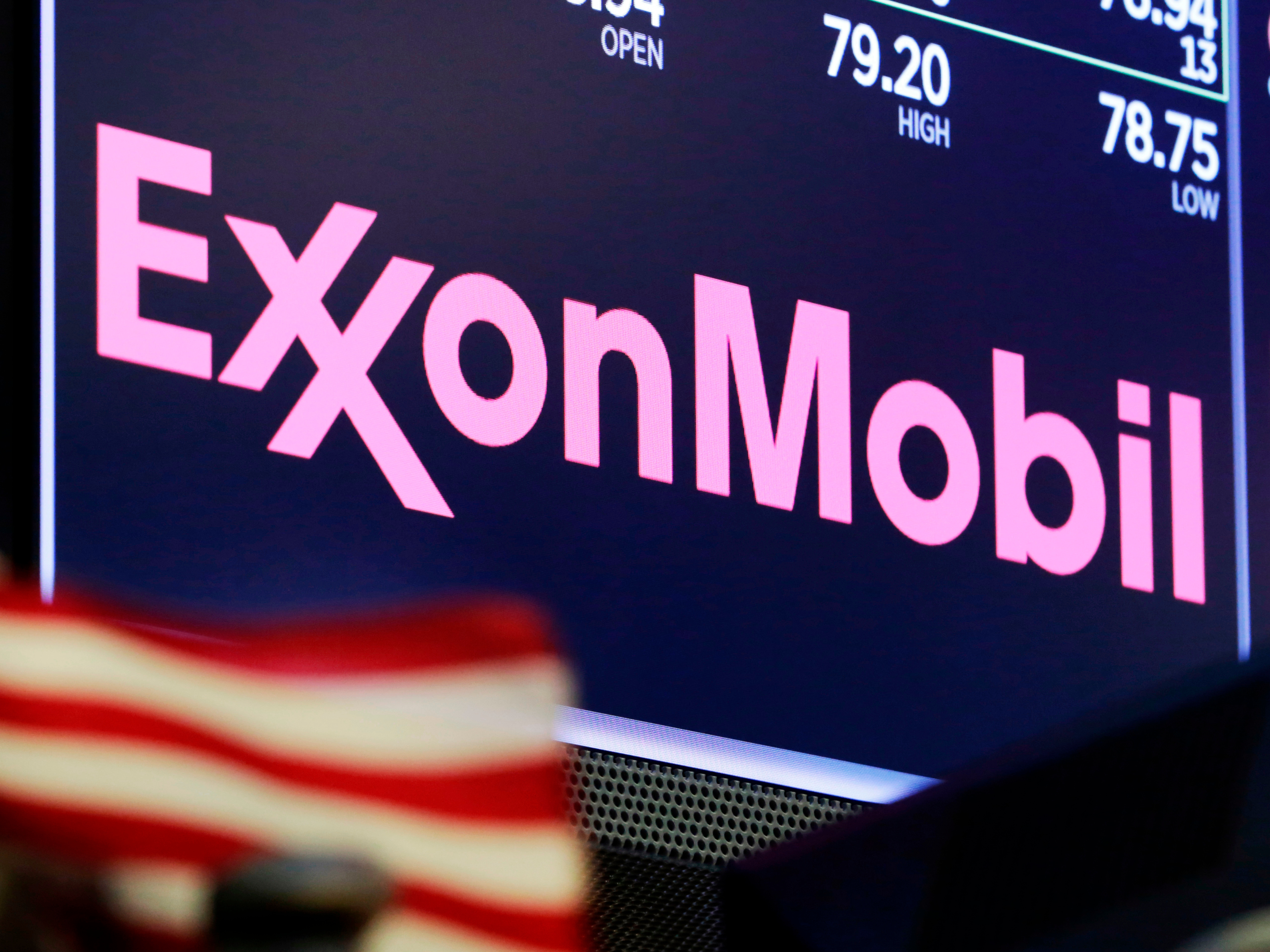
Exxon Lobbyist Caught On Video Talks About Undermining President Biden’s Climate Push
Indiscrete comments made by an ExxonMobil lobbyist to undercover activists may figure prominently in upcoming congressional hearings about the role of oil companies in the battle against climate change. Continue Reading Exxon Lobbyist Caught On Video Talks About Undermining President Biden’s Climate Push
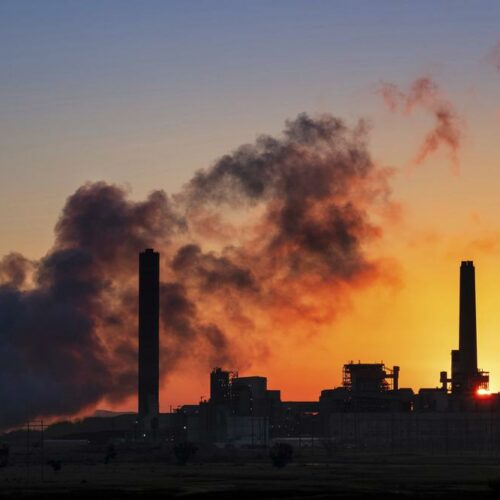
Wyoming Doubles Down On Coal With Threat To Sue Other Western States, Including Washington
Last year, Wyoming and Montana — another major coal state — asked the Supreme Court to override a decision by Washington state to deny a permit to build a coal export dock on the Columbia River. The interstate lawsuit followed years of unsuccessful attempts by the dock’s developer, Utah-based Lighthouse Resources, to contest the permit denial in federal court. Continue Reading Wyoming Doubles Down On Coal With Threat To Sue Other Western States, Including Washington
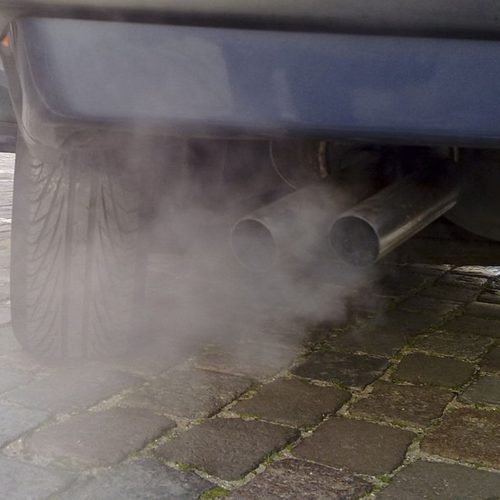
Washington Joins Oregon, California, British Columbia In Passing Low-Carbon Fuel Standard
The state’s new fuel standards will slowly lower the amount of heat-trapping greenhouse gasses coming out of vehicle tailpipes through 2035. That means cleaner technologies biodiesel or renewable natural gas will get a boost over gasoline and diesel. Continue Reading Washington Joins Oregon, California, British Columbia In Passing Low-Carbon Fuel Standard

